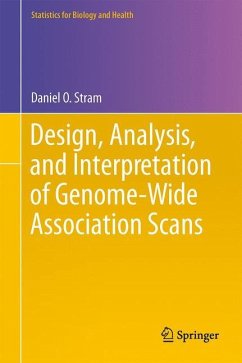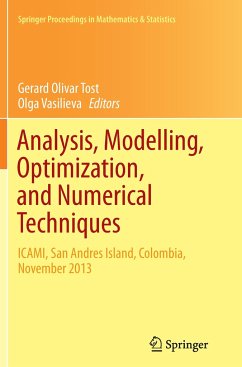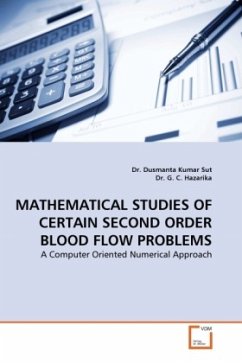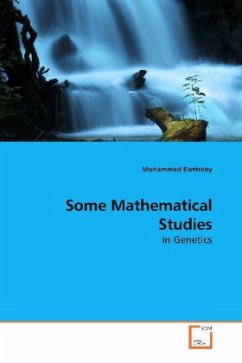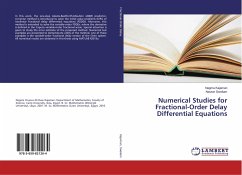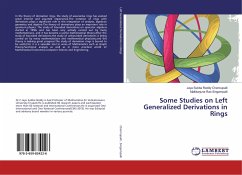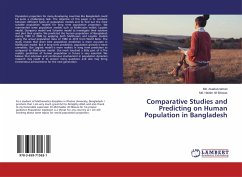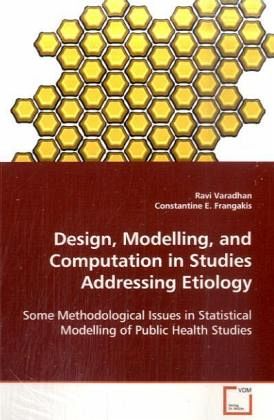
Design, Modelling, and Computation in Studies Addressing Etiology
Some Methodological Issues in Statistical Modelling of Public Health Studies
Versandkostenfrei!
Versandfertig in 6-10 Tagen
39,99 €
inkl. MwSt.

PAYBACK Punkte
20 °P sammeln!
This thesis comprises three distinct research papers. The first paper focuses on two important methodological issues pertaining to the design and analysis in a relatively new epidemiological study design, called the case-crossover design. This design, which only uses the cases, can be useful in developing hypotheses regarding the etiology of an acute event by examining the association between a recurrent exposure and the acute event. The second paper addresses model uncertainty in model-based low dose extrapolation for microbial risk assessment. Here, inference on low-dose risk estimates is hi...
This thesis comprises three distinct research
papers. The first paper focuses on two important
methodological issues pertaining to the design and
analysis in a relatively new epidemiological study
design, called the case-crossover design. This
design, which only uses the cases, can be useful in
developing hypotheses regarding the etiology of an
acute event by examining the association between a
recurrent exposure and the acute event. The second
paper addresses model uncertainty in model-based low
dose extrapolation for microbial risk assessment.
Here, inference on low-dose risk estimates is highly
sensitive to model choice. We propose a new
approach called profiled Bayesian model averaging
(PBMA) to account for model uncertainty. PBMA only
requires prior distribution on the target of
inference, and can be justified based on practical
and theoretical (asymptotic) arguments. The third
paper presents simple and globally convergent
numerical methods for accelerating the convergence
of the Expectation-Maximization (EM) algorithm, a
popular approach in computational statistics
for finding maximum likelihood estimates of
parameters.
papers. The first paper focuses on two important
methodological issues pertaining to the design and
analysis in a relatively new epidemiological study
design, called the case-crossover design. This
design, which only uses the cases, can be useful in
developing hypotheses regarding the etiology of an
acute event by examining the association between a
recurrent exposure and the acute event. The second
paper addresses model uncertainty in model-based low
dose extrapolation for microbial risk assessment.
Here, inference on low-dose risk estimates is highly
sensitive to model choice. We propose a new
approach called profiled Bayesian model averaging
(PBMA) to account for model uncertainty. PBMA only
requires prior distribution on the target of
inference, and can be justified based on practical
and theoretical (asymptotic) arguments. The third
paper presents simple and globally convergent
numerical methods for accelerating the convergence
of the Expectation-Maximization (EM) algorithm, a
popular approach in computational statistics
for finding maximum likelihood estimates of
parameters.



